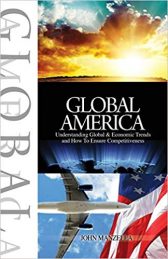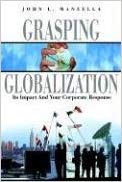Pandemic-related realities and the fallout from the Russia-Ukraine war continue to impact the U.S. and global economy, while complexities with China add new risks. Combined with the energy revolution, shifting demographics, and challenges with the USMCA and Europe, these ...
Pandemic-related realities and the fallout from the Russia-Ukraine war continue to impact the U.S. and global economy, while complexities with China add new risks. Combined with the energy revolution, shifting demographics, and challenges with the USMCA and Europe, these issues are shaping our future. What does this mean to you? This invaluable program analyzes economic trends, examines trading relationships, reveals Chinese dangers, and explores critical issues involving labor, skills, automation, and immigration. Additionally, it offers survival strategies and provides insight on what’s ahead.
This popular program covers four important areas that impact each other:
(1) Macroeconomics: GDP forecast, long term economic risks, factors impacting growth and inflation, energy, housing, global GDP, and country forecasts, etc.
(2) Labor: unemployment forecasts, shifting demographics, worsening labor shortages, falling participation levels and reasons, strategies to attract and retain labor, automation, immigration, etc.
(3) Trade and globalization: the direction of globalization, impact on industry and workers, USMCA, Europe and Brexit, emphasis on China’s direction, decoupling prospects, Chinese risks and challenges, etc.
(4) Capitalism is being threatened: The need to maintain reasonable tax rates is necessary in order to incentivize entrepreneurs to take risk, while generating enough revenue to help stabilize or prevent the continued erosion of the U.S. middle class (similar situation around the globe). As the middle class erodes, voters tend to support populists on the far right and left. In both cases, capitalism is at risk.

